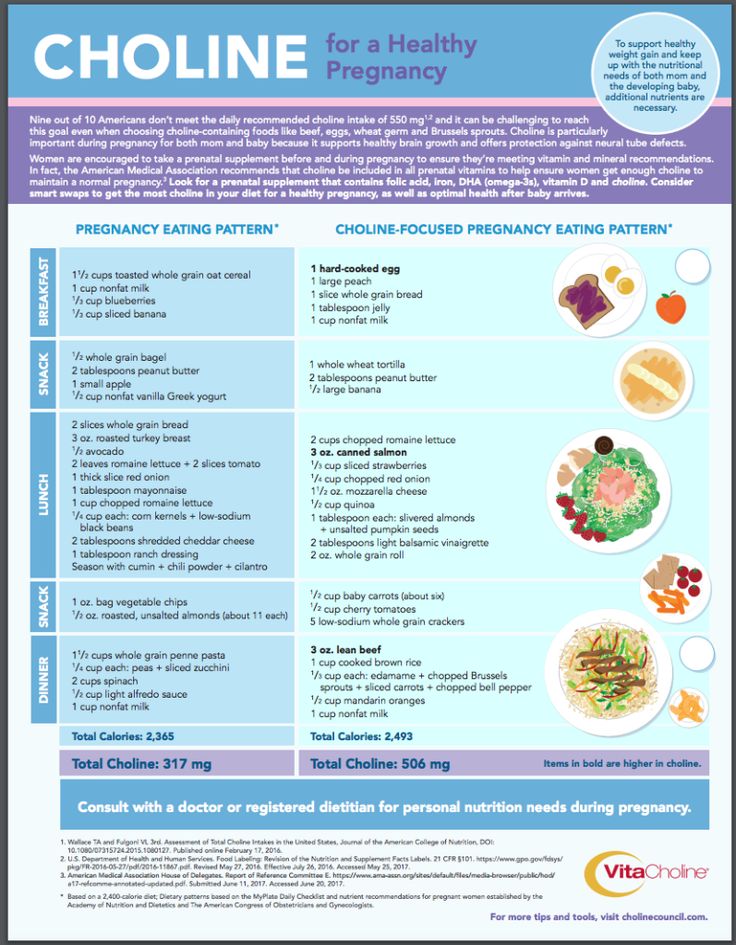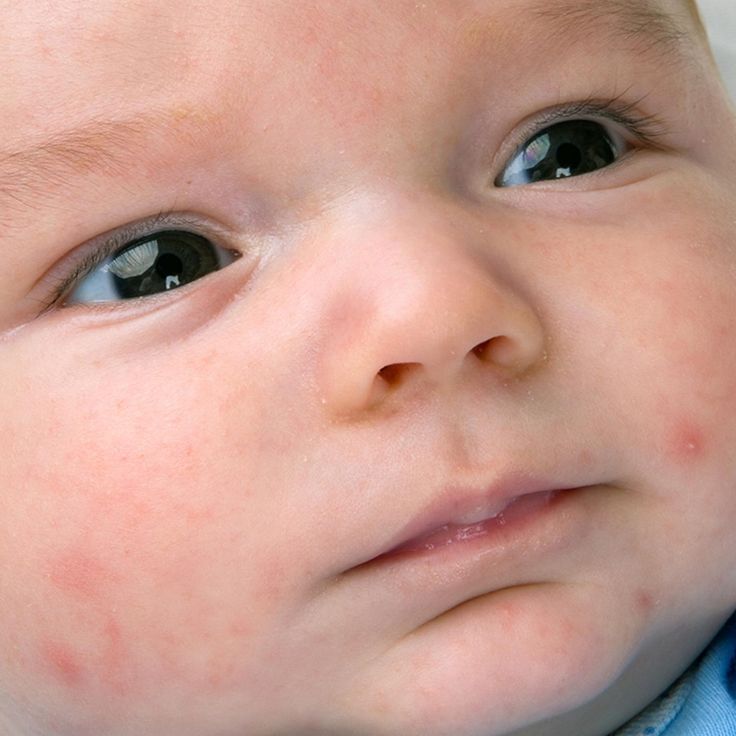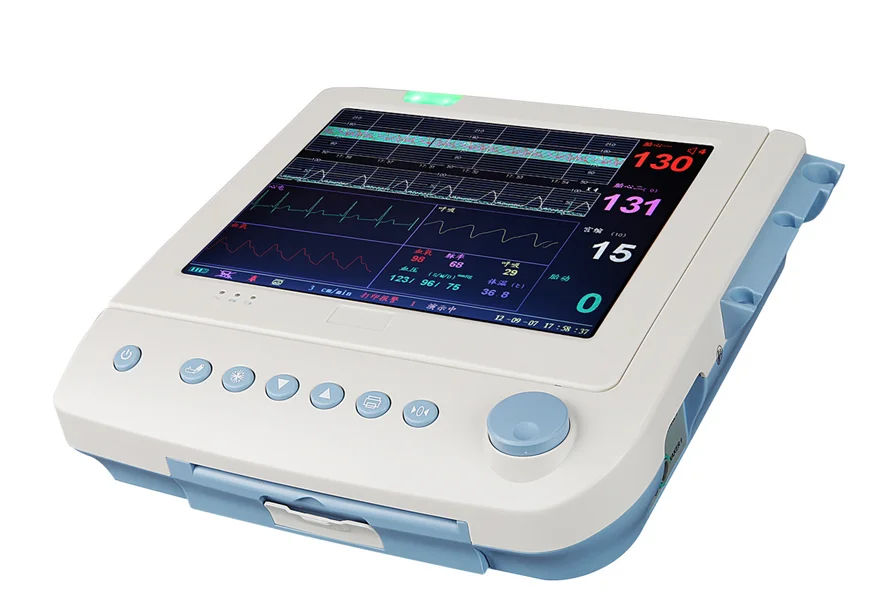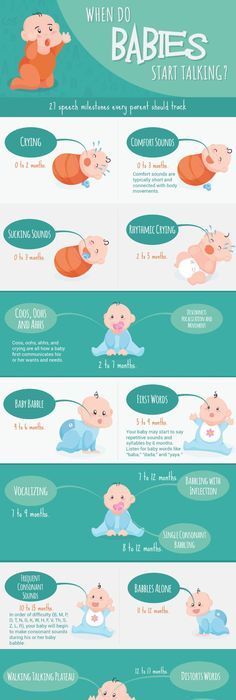How to ensure a healthy baby
12 Ways to Stay Healthy During Pregnancy
Audra Meadows, MD, MPH, an obstetrician at Brigham and Women’s Hospital, helps patients optimize their health before, during and after pregnancy. Here are 12 tips from Dr. Meadows to help you increase your chances of having a healthy pregnancy and a healthy baby.
1. Eat healthy foods.
Eating healthy foods is especially important for pregnant women. Your baby needs nutrients to grow healthy and strong in the womb. Eat plenty of colorful fruits and vegetables, whole grains, calcium-rich foods and foods low in saturated fat.
2. Take a daily prenatal vitamin.
Taking a daily prenatal multivitamin can help ensure you get the right amount of the key nutrients you and your baby need during pregnancy. These include folic acid, iron and calcium.
3. Stay hydrated.
A pregnant woman’s body needs more water than it did before pregnancy. Aim for eight or more cups each day.
4. Go to your prenatal care checkups.
Women should get regular prenatal care from a health care provider. Moms who don’t get regular prenatal care are much more likely to have a baby with low birth weight or other complications. If available, consider group prenatal care.
5. Avoid certain foods.
There are certain foods that women should avoid eating while pregnant. Don’t eat:
- Raw or rare meats
- Liver, sushi, raw eggs (also in mayonnaise)
- Soft cheeses (feta, brie)
- Unpasteurized milk
Raw and unpasteurized animal products can cause food poisoning. Some fish, even when cooked, can be harmful to a growing baby because they’re high in mercury.
6. Don’t drink alcohol.
Don’t drink alcohol before and during pregnancy and while breastfeeding. Drinking alcohol increases the risk of having a baby with fetal alcohol spectrum disorder (FASD). FASD can cause abnormal facial features, severe learning disabilities and behavioral issues.
Alcohol can impact a baby’s health in the earliest stages of pregnancy, before a woman may know she is pregnant.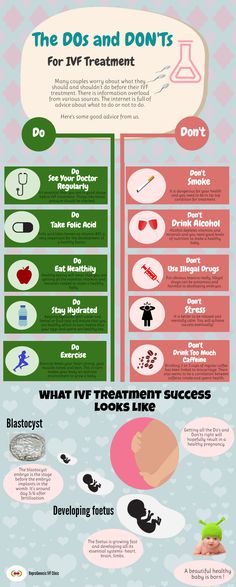 Therefore, women who may become pregnant also should not drink alcohol.
Therefore, women who may become pregnant also should not drink alcohol.
7. Don’t smoke.
Smoking is unhealthy for you and your unborn child. It increases the risk of sudden infant death syndrome (SIDS), premature birth, miscarriage and other poor outcomes.
8. Get moving.
Daily exercise or staying active in other ways can help you stay healthy during pregnancy. Check with your doctor to find out how much physical activity is right for you.
9. Get a flu shot.
The flu can make a pregnant woman very sick and increase risks of complications for your baby. The flu shot can protect you from serious illness and help protect your baby after birth, too. Ask your doctor about getting a flu shot.
10. Get plenty of sleep.
Ample sleep (7 to 9 hours) is important for you and your baby. Try to sleep on your left side to improve blood flow.
11. Reduce stress.
Reducing stress is crucial for improving birth outcomes. Pregnant women should avoid, as much as they can, stressful situations.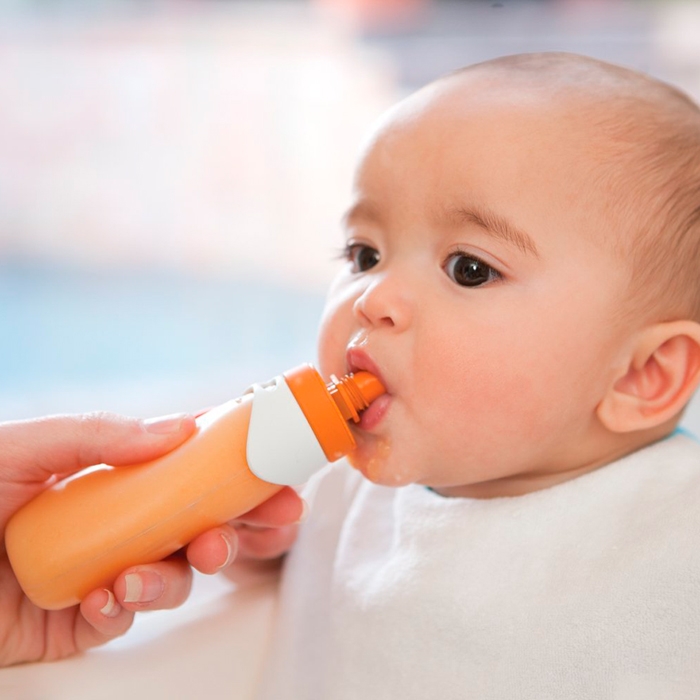 Recruit your loved ones to help you manage stress in your life.
Recruit your loved ones to help you manage stress in your life.
12. Plan the right time to get pregnant.
“If you are choosing to become pregnant at a time when you know that you’re at your healthiest, that increases your chances of having a healthy pregnancy and a healthy birth,” says Dr. Meadows.
This not only means that women should make sure that they are healthy before they become pregnant, but they also should consider their age before getting pregnant. Mothers who have children early in life (earlier than 16-years-old), or late in life (older than 40) are at greater risk for having a premature birth. Also, women who become pregnant again too soon (less than 18 months in between births) are even more likely to have a premature baby.
Audra Meadows, MD, MPH
Audra Meadows, MD, MPH is an obstetrician at Brigham and Women’s Hospital (BWH).
Before you go,
If you’re thinking about pregnancy, managing a pregnancy complication or looking for tips on newborn care, our experts can help support you at every step in your journey.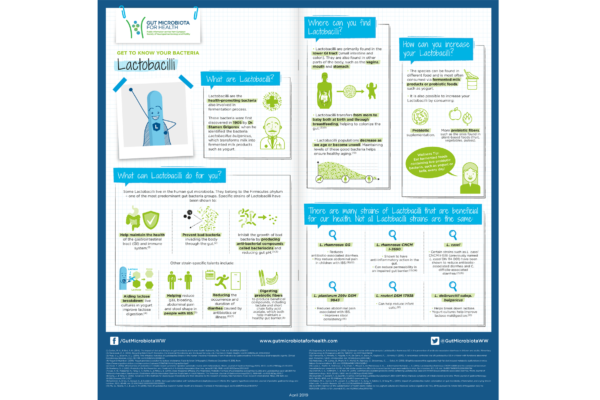 Read more pregnancy and childbirth articles.
Read more pregnancy and childbirth articles.
Learn more about the Department of Obstetrics and Gynecology
Request an Appointment
7 Things To Do Now If You Want To Have A Healthy Baby
1. Maintain a healthy weight.
Women who enter pregnancy overweight have a higher risk of prenatal and birth complications and need for a C-section, and baby is much more likely to have a host of health problems ranging from allergies, asthma, and obesity in childhood to diabetes and heart disease later in life. Find the right program for you, based on whole foods, wise eating habits, and yoga or your other fave form of exercise.
2. Go organic.
Exposure to pesticides in the womb may lead to trouble for kids' neurological functioning. Studies show1 that exposure to pesticides is linked to lower IQ scores2 and increased risk of autism spectrum disorder3. While going fully organic might not be practical or even necessary, start now by doing your best to at least avoid "The Dirty Dozen," the list of foods that has the highest level of pesticide contamination, or go organic on these. (And anyway, there are many reasons to eat organic other than expecting a pregnancy!)
(And anyway, there are many reasons to eat organic other than expecting a pregnancy!)
Advertisement
This ad is displayed using third party content and we do not control its accessibility features.
3. Can the tuna and all other high-mercury fish.
Newborns are loaded up with about 300 chemicals that can be identified in their umbilical cord blood at birth. Fish is a super-nutritious protein source, but some are loaded with mercury. Mercury (and other heavy metals) in mom literally download directly to baby throughout the pregnancy and can cause a host of health problems. Mercury is particularly noxious because it affects the neurological and hormonal systems. Check out the Environmental Working Group's list of fish to avoid for more information.
4. Clean up your cosmetics.
Most women apply as many as 10 body products before leaving for work in the morning, and most of those have a dozen ingredients, some of which are known toxins, including lead found in some lipsticks and eyeliners4.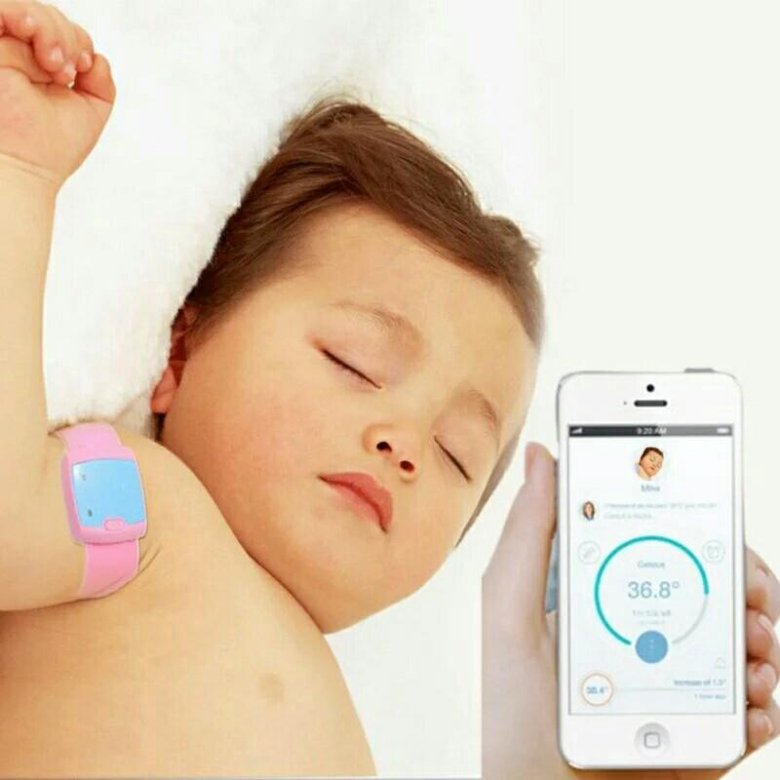 Our skin is our biggest organ—a lot of what goes on also goes in! As with mercury, we accumulate these chemicals over our lifetime, and then baby inherits more than just our good looks—baby gets a cosmetic chemical infusion. Once again, the EWG is your go-to resource for the best cosmetics and body products to start using now. When you're ready, here's how to switch to natural makeup step by step.
Our skin is our biggest organ—a lot of what goes on also goes in! As with mercury, we accumulate these chemicals over our lifetime, and then baby inherits more than just our good looks—baby gets a cosmetic chemical infusion. Once again, the EWG is your go-to resource for the best cosmetics and body products to start using now. When you're ready, here's how to switch to natural makeup step by step.
Advertisement
This ad is displayed using third party content and we do not control its accessibility features.
5. Maintain a healthy gut microbiome.
Did you know that a person's gut flora is pretty much determined by age 3, and most of all, it's thanks to mom? Mom having a healthy gut flora (and then having a vaginal birth and breastfeeding if possible) are like investing in gold for baby's gut flora bank account. And it all starts long before pregnancy.
The top things you can do to create a healthy gut flora for yourself:
- Avoid antibiotics (unless of course truly necessary—and they rarely are).

- Eat a wide variety of foods and especially leafy greens and fermented foods.
- Take a good-quality probiotic.
Advertisement
This ad is displayed using third party content and we do not control its accessibility features.
6. Take your vitamins.
If you want to have a baby and are planning to get pregnant, taking folic acid (a B vitamin) is extremely important for protecting your baby's health against neural tube defects. But not only that, it protects against pregnancy loss, preterm birth, high blood pressure, and preeclampsia in pregnancy, and can lower the risk of autism in your baby. With autism rates in the U.S5. now at one in 54 kids, that's a vitamin worth taking.
I recommend 400 mcg to 1 mg of the active form, called methylfolate, for optimum protection. Also, while you're at it, hop on the fish oil train and add in some vitamin D3 (1,000 to 2,000 units daily), both of which can prepare you for an optimal pregnancy and which are great for your health even now.
7. De-stress.
Stress messes with your hormones and causes fertility problems. Stress messes with your blood sugar and insulin levels and may exacerbate pregnancy problems. And a mother's emotional distress during pregnancy is linked to6 a higher risk of mental health problems for her kids. In general, it's estimated that at least 80% of all health problems are caused by stress. That's a lot of mess from stress.
So, pick your healing tool: yoga, meditation, exercise, counseling, making big scary but needed life/work/relationship transformations...just do it. Conquer that stress and cultivate peace. This equals a better you, better babies, and a better world.
Remember: The world we create today is the world our kids will inherit tomorrow.
Advertisement
This ad is displayed using third party content and we do not control its accessibility features.
6 Sources
1.
https://www.ncbi.nlm. nih.gov/pmc/articles/PMC4247335/
nih.gov/pmc/articles/PMC4247335/
2.
https://www.ncbi.nlm.nih.gov/pmc/articles/PMC3237357/
3.
https://www.bmj.com/content/364/bmj.l962
4.
https://www.fda.gov/cosmetics/potential-contaminants-cosmetics/lead-cosmetics
5.
https://www.cdc.gov/ncbddd/autism/data.html
6.
https://www.ncbi.nlm.nih.gov/pubmed/24108418
Want to turn your passion for wellbeing into a fulfilling career? Become a Certified Health Coach! Learn more here.
Children's health is our main concern
Today, in our country, special attention is paid to the health of each child: pregnant women are monitored and, if necessary, treated, aimed not only at improving or recovering the woman, but also at preserving the health of the unborn child. From the birth of babies, pediatricians observe, medical examinations of children, medical examinations in preschool and educational institutions are carried out. But without the participation of parents, all these efforts will not bring results.
But without the participation of parents, all these efforts will not bring results.
What can be more important for parents than the health of the child? The correct answer is nothing.
To properly care for the health of children, it is necessary to know as much as possible about what is related to the health of the child. The availability of medical literature and the Internet, on the one hand, allow parents to understand many medical diagnoses and find many useful tips on the prevention and treatment of various diseases. But at the same time it can harm the health of children. Moms and dads, believing in their knowledge (rather superficial), make independent attempts at treatment. For this reason, often the child goes to the doctor when the disease becomes severe or chronic.
You are responsible for the health of your children! Remember, only a medical worker - a specialist is able to provide really qualified assistance to a small patient.
WHAT SHOULD A FUTURE MOTHER KNOW?
Maternal and child health is an inseparable concept. Most of the health problems of the child occur during pregnancy. In our country, special attention is paid to ensuring the health of expectant mothers. It may be that some of the pregnant women are bothered by constant examinations, numerous tests and visits to specialists in various fields, but such control allows you to track changes in the condition of both the mother and the fetus, carry out prevention or prescribe treatment in time.
It is necessary to register in a antenatal clinic in a timely manner so that the doctor can observe the course of pregnancy throughout the entire period. Observation of a pregnant woman is FREE OF CHARGE at the antenatal clinic at the place of residence. If you are registered at one address and live in another place, you have the right to contact the nearest consultation. The main thing is to present the CHI policy.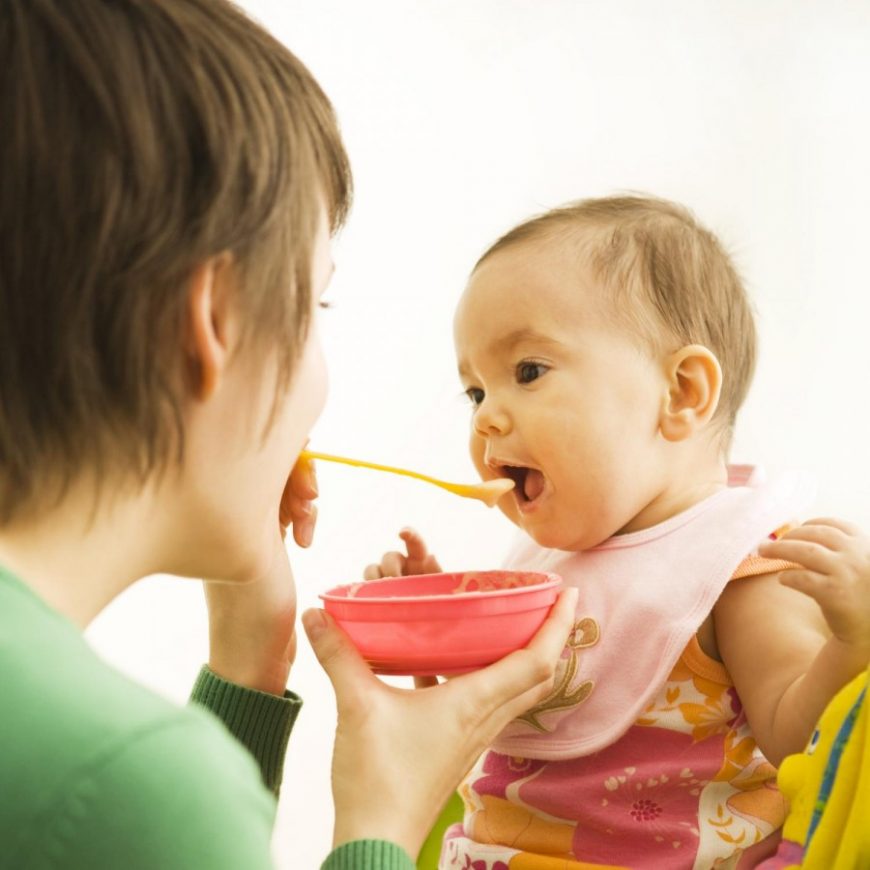
In the first year of life, the health and development of the child is monitored by professionals, which helps parents, especially first-born parents, feel more confident. The health of a child up to a year is under the supervision of a pediatrician of a children's clinic. Immediately after the birth of the child, a neonatologist observes, who, even in the maternity hospital, carries out the necessary procedures, takes tests and vaccinates (the first vaccination against tuberculosis is done in the maternity hospital). At home, a newly-made mother is visited by a patronage nurse, who can give advice on handling the baby - feeding, hygiene, and the first problems.
VACCINATIONS: FOR AND AGAINST
There is a popular belief that children do not need to be vaccinated, and that vaccinations are even harmful to a fragile organism. However, it is worth remembering that the victory over such terrible diseases as smallpox, polio, was won thanks to vaccination.
Officially, for babies up to a year old, vaccinations against tuberculosis and hepatitis B, as well as vaccinations against whooping cough, diphtheria and tetanus (DTP) are considered the main ones. But due to the fact that sometimes children do not always easily tolerate these vaccinations, some parents have questions. What to do - parents decide. If you are among the supporters of increasing immunity and preserving children's health in natural ways, then you can write a refusal in writing in the baby's polyclinic card, but then you take full responsibility for the preservation of his health.
Regardless of the decision of parents to vaccinate or not to vaccinate, there is a mandatory vaccination list (National Vaccination Schedule), ignoring which can create difficulties when placing a child in a kindergarten, and the risk of diseases without a specific one is also increased. Therefore, before refusing to vaccinate children, you need to weigh the pros and cons, discuss this with your doctor, especially if the child has medical exemptions.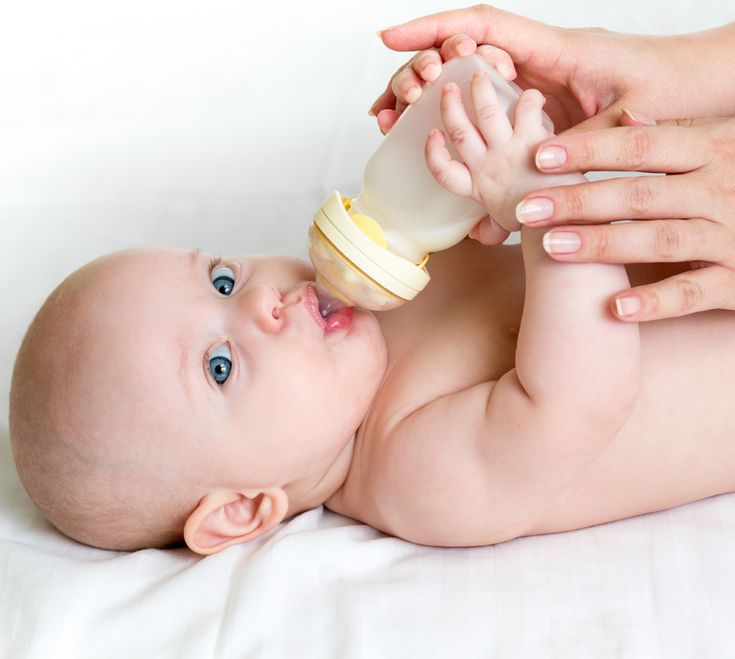
What is the state of health of the current generation of children?
Unfortunately, the statistics inexorably states the deterioration of the general health of children in Russia. Many factors are to blame. The health of the child is exposed to a not too favorable environmental situation, the load at school and even kindergarten is increasing, trying to keep up with the rhythm of life in modern society. Overwork, the influence of numerous technical devices that surround a small person instead of flowers and trees, the elementary lack of walks in the fresh air - the state of health of children reflects the picture of our society.
Constant stress undermines the health of the child, the strength of the growing organism is depleted (let's not forget that growth is a rather hard job that every child is busy with) - and now immunity has weakened and the inscription "often ill" appears on the medical card.
The system of regular medical examinations in educational institutions allows you to notice ailments at the stage of their appearance and eliminate them without waiting until they become a serious problem.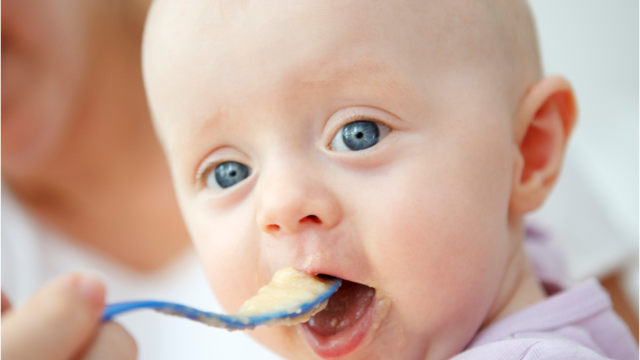 Thanks to the efforts of doctors, the workload for younger schoolchildren is not so much reduced as more competently distributed. Pediatricians in polyclinics take care of the health of each child up to a year old, regularly examining their little wards, sending, if necessary, to narrower specialists. Children's clinics, even in the provinces, acquire the most modern equipment for diagnosis and treatment.
Thanks to the efforts of doctors, the workload for younger schoolchildren is not so much reduced as more competently distributed. Pediatricians in polyclinics take care of the health of each child up to a year old, regularly examining their little wards, sending, if necessary, to narrower specialists. Children's clinics, even in the provinces, acquire the most modern equipment for diagnosis and treatment.
However, the problem of deteriorating children's health is by no means solved. That is why it is so important to preserve and constantly improve the health of children not only at school and kindergarten, but also at home. Who, if not parents, can take care of the health of their child, find an individual approach, teach the baby the rules of a healthy and active life.
HOW TO IMPROVE THE HEALTH OF THE CHILD AT HOME?
Considering the loads that fall to the share of our kids, special attention should be paid to strengthening the health of the child at home. We are talking about hardening, as well as protecting the health of children . If you think that hardening necessarily includes swimming in an ice hole or chasing barefoot in the snow - do not worry, the child's health does not require such sacrifices. A good place to start is by bathing your baby in water that is a degree colder than usual. Then another degree ... If you see that water procedures still do not cause discomfort to the baby, gradually make the water cool (but not cold, not lower than 24 ° C). The immunity of the child is noticeably increased even from such simple hardening procedures.
We are talking about hardening, as well as protecting the health of children . If you think that hardening necessarily includes swimming in an ice hole or chasing barefoot in the snow - do not worry, the child's health does not require such sacrifices. A good place to start is by bathing your baby in water that is a degree colder than usual. Then another degree ... If you see that water procedures still do not cause discomfort to the baby, gradually make the water cool (but not cold, not lower than 24 ° C). The immunity of the child is noticeably increased even from such simple hardening procedures.
Undoubtedly, one of the most important factors of hardening and health of children are regular walks . The main thing is to properly dress the child. Pediatricians advise for babies to use the principle of "cabbage" - multi-layered clothes that can be removed if it gets hot. The everyday rule works well - the child should have as many layers of clothing as you do, plus one more. Remember that overheating is more harmful to children's health, since overheating is more likely to lead to colds than hypothermia.
Remember that overheating is more harmful to children's health, since overheating is more likely to lead to colds than hypothermia.
Another faithful assistant in strengthening the health of the child is the well-known exercise . It is not necessary to carry it out in the morning, it is better to choose time several times during the day for a few simple and fun exercises. Run with your offspring barefoot on a massage mat, imitate various animals - just don't turn exercise into a dull duty. The health of our children is in our hands.
PROPER NUTRITION
To organize the proper nutrition of the child, when planning the diet, it is necessary to take into account the characteristics of the child's body. The main difference between baby food is the growth of the child's body, so the baby needs more protein than an adult. Another feature is that children are very mobile, and this contributes to the normalization of metabolism. Due to the high metabolic rate, children, unlike adults, are able to absorb significantly more sweets without much harm to themselves.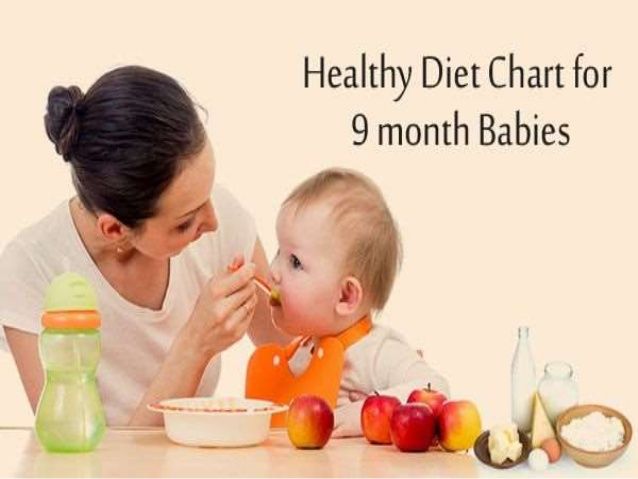 However, they should not be encouraged to do so. Although sweet foods of natural origin are very healthy for the child. In addition, children use cholesterol much more than adults. It is extremely important for health, it is the main component of the membrane that surrounds the cells of the whole organism. And the child grows, and many new cells are formed in him.
However, they should not be encouraged to do so. Although sweet foods of natural origin are very healthy for the child. In addition, children use cholesterol much more than adults. It is extremely important for health, it is the main component of the membrane that surrounds the cells of the whole organism. And the child grows, and many new cells are formed in him.
An important nuance is that the fat cells that make up the "fat" are mostly formed during the first years of life. Subsequently, they increase and grow in size. Therefore, the way an adult looks is largely related to nutrition in childhood.
Finally, the most important feature of baby food. In the body of a child, the regulatory mechanisms that control the intake and expenditure of energy function perfectly. His body knows exactly what food and in what quantities it needs. However, if there is an abundance of deliciously cooked (with spices, fried, fatty, etc.) and sweet dishes, it will be the tongue that coordinates the appetite, and not the physiological need.
Improving the health of a child is not a periodic event, but an ideology of education, a behavioral base that will remain with a person for life.
If from early childhood you teach your beloved child to an active lifestyle, proper daily routine, instill good habits, and do it in an unobtrusive way, without causing internal protest, be sure that you have taken care of an additional bonus for the child - health, and this bonus is undoubtedly will help you achieve great success in any area of life.
print version
How to instill a healthy lifestyle in a child?
How to instill a healthy lifestyle in a child?
One of the main responsibilities of a parent is to explain to the child how and why to lead a healthy lifestyle. It is best to instill in him useful skills and knowledge at an early age. This will help prevent bad decisions and bad habits in the future.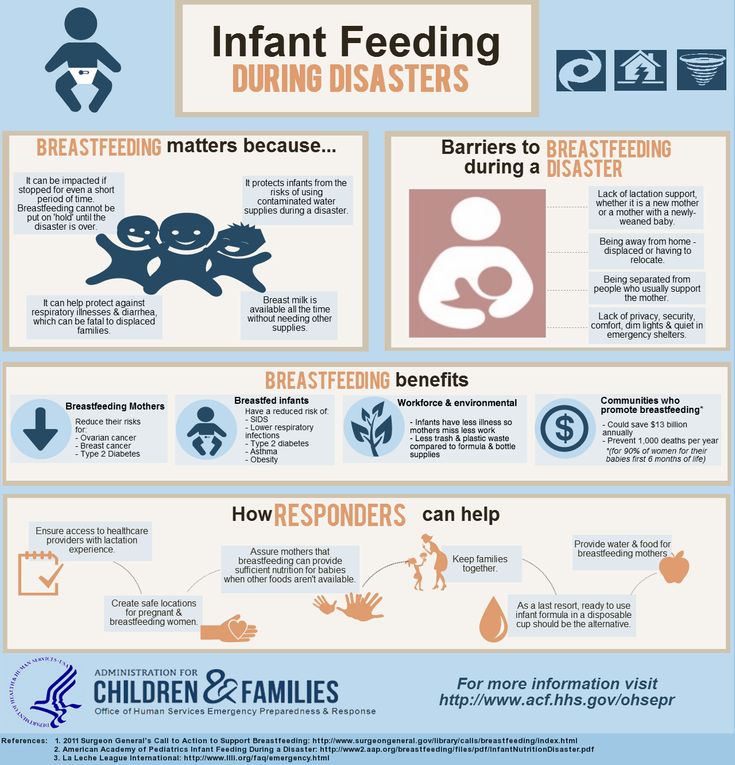
It is extremely important for parents to set a good example. Just telling a child about what is right in theory will not always give the desired result. It is very important for the baby to see with his own eyes how you yourself do everything that has been said.
How to stay healthy?
Here are some tips to help children develop healthy habits.
Nutrition and physical activity
In many developed countries today, children are overweight. The problem is eating too much food rich in fat and sugar. In addition, modern children are much less physically active. At the same time, being overweight in childhood significantly increases the risk of health problems in adulthood. These include diabetes, high blood pressure, high cholesterol, cardiovascular disease, and cancer.
Here are some tips for preventing or managing excess weight:
- Pay attention to the food you buy. Limit the amount of processed foods and unhealthy snacks in your child's diet.
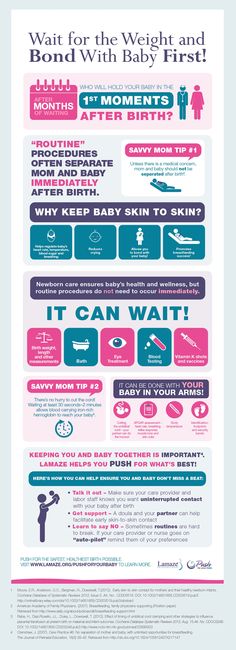 Always keep a mix of fresh fruits and vegetables on the table, which are the perfect snacks. be aware that low-fat foods may contain unhealthy ingredients and added sugar.
Always keep a mix of fresh fruits and vegetables on the table, which are the perfect snacks. be aware that low-fat foods may contain unhealthy ingredients and added sugar. - Try to diversify your diet with healthy foods and watch your portion sizes. Carefully read the composition of the products: this information is usually indicated there.
- Make it a tradition to eat with the whole family. At the same time, gather at the table, and not at the TV.
- Give your child more water and milk, while limiting sugary and high-calorie drinks. These include fruit juices, sodas, sports drinks, energy drinks, sweetened or flavored milk, and sweet iced tea.
- Monitor your child's activity. He should spend no more than 2 hours a day at the TV, computer or video set-top box. Instead, encourage him to play sports in every possible way.
- Make exercise an integral part of your family's life. Walk, go to the pool or ride a bike. Encourage your child to participate in group activities such as team sports or martial arts.
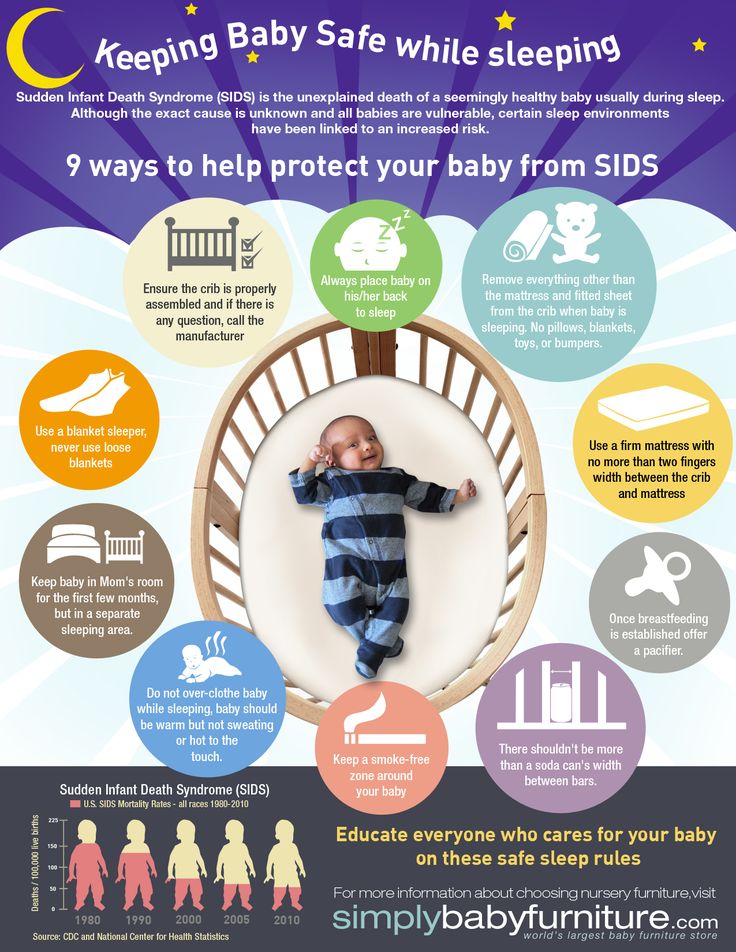 All this contributes to the development and increase of self-esteem of the child. Try to include other aerobic activities in your child's daily routine.
All this contributes to the development and increase of self-esteem of the child. Try to include other aerobic activities in your child's daily routine. - Teach him about oral hygiene from an early age. It involves brushing your teeth twice a day with a toothbrush and once with dental floss. Take your child to the dentist every 6 months.
Tobacco, alcohol and other drugs
Children can become interested in all kinds of drugs at a young age. In fact, many children try tobacco, alcohol, and soft drugs as early as middle school. At the same time, studies show that this probability is lower if parents begin to talk with their child about the dangers of such substances from an early age.
Here are some suggestions:
- State and do not be afraid to repeat that you do not allow your child to smoke cigarettes, drink alcohol or use drugs. Speak clear sanctions that will follow in case of violation of this prohibition.

- Explain why these substances are harmful. Ask your child to ask questions. A real and true story can attract his attention better than bare theory and statistics. Share examples from people's lives that demonstrate the negative effects of alcohol, tobacco, and drug use.
- Be sure to prepare your child for peer pressure. Role-playing games will help him learn to say “no” to the offer of a cigarette, alcohol or drugs.
- You must know all of your child's friends and their parents. Try to build trust with them. Tell other parents about the rules you are instilling in your child. Always ask your child about what he is doing, where and with whom, and when he will return home. You should always have a way to communicate.
- Set a worthy example. Pay attention to how your actions affect your child. For example, if you yourself smoke or use drugs, the child may accept this as the norm.
Sexual behavior
Approximately 1 million teenage female pregnancies occur each year. Nearly 3 million teenagers are exposed to sexually transmitted diseases every year. Although such a conversation is sure to be awkward, it is your responsibility to explain to your child the risks and responsibilities of having an active sex life. In particular, he should be aware of remedies for disease and pregnancy. Do not rely solely on school teachers in this matter. It is in your power to make sure that the child perceives sex in the context of love and respect. you must also convey to him the meaning of such a thing as consent, and its importance in the interaction of two people.
Nearly 3 million teenagers are exposed to sexually transmitted diseases every year. Although such a conversation is sure to be awkward, it is your responsibility to explain to your child the risks and responsibilities of having an active sex life. In particular, he should be aware of remedies for disease and pregnancy. Do not rely solely on school teachers in this matter. It is in your power to make sure that the child perceives sex in the context of love and respect. you must also convey to him the meaning of such a thing as consent, and its importance in the interaction of two people.
Here are some suggestions:
- If the child is small, answer questions about sex when he asks them.
- If it's a teenager, talk about sex beforehand to avoid problems. A teenager should be aware of all the risks of sexual contact even before entering into it. Therefore, you need to talk about all this even if you do not think that the child intends to try sex.
- Be honest and open about family values and your opinions about and expectations of sex.
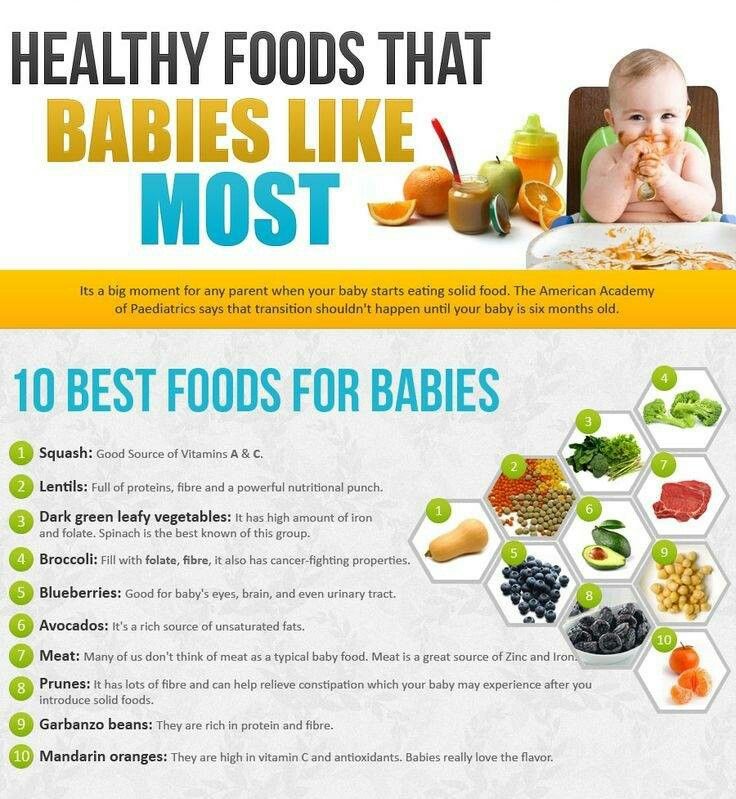 You may want to ask your family doctor for help before talking about this topic. He can provide you with useful facts and information.
You may want to ask your family doctor for help before talking about this topic. He can provide you with useful facts and information. - Think about how the child's attitudes to sex are formed by school and the media, and then help him separate reality from fiction. Ask him to feel free to ask you any questions.
- Adopt a progressive parenting style. Children are much more likely to make contact if they are not afraid of your reaction. Let them know that they can contact you right away if they have any sexual problems or concerns.
Recommendations
Most children look up to their parents. That is why it is extremely important to be a good role model. A healthy lifestyle should bring pleasure to all members of the family, so it should be taught through the provision of choice. Reward your child for good behavior with healthy treats or rewarding activities. If you can always keep a positive attitude and provide support, the child will develop strong self-confidence and healthy habits.